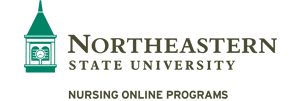Think about the education system as a whole. If every teacher or professor left the field in one fell swoop, who would have enough knowledge to step in and take their place? It would be challenging for those who have not been taught to then teach, creating a void in the education landscape.
The same goes for the nursing field. Programs offering advanced degrees focused on nursing education online are pivotal in equipping the next generation of nurses with the requisite skills, knowledge and attitude to offer exemplary patient care. Through rigorous academic and practical training, nursing students are prepared to handle myriad healthcare situations.
Below explores the essence of nursing education and a break down of the role nurse educators play in shaping its future.
Nursing Educator Responsibilities
A nurse educator wears multiple hats. According to Indeed, these professionals are responsible for designing, implementing, evaluating and updating educational programs for nurses. They unite academic learning with its practical application in healthcare settings.
Moreover, a nurse educator’s role goes beyond teaching. They mentor students, serve as role models and lead research initiatives to enhance the quality of nursing care. Nurse educators are also expected to stay current on the latest trends, techniques and technologies in nursing to provide their students with the best training.
Teaching Strategies for Nurse Educators
Effective teaching involves adopting diverse strategies tailored to learners’ needs. Indeed’s recommendations include several techniques to employ:
- Case studies: allow students to apply theoretical knowledge to real-world scenarios
- Simulation-based training in nursing education: uses mannequins and simulation technology so students can practice in a controlled environment and replicate real-life scenarios without risk
- Group discussions: encourage students to share experiences and learn from peers
- Interdisciplinary partnership projects: pair students with instructors in diverse healthcare disciplines to complete projects, including research projects
- Flipped classrooms: uses learning content outside of class and class time for discussions and problem-solving
- Service-based learning: places students within community organizations or specific service-based projects in order to promote values like a dedication to community support
- Self-reflection: provides an opportunity for nursing students to assess their own performance, identifying strengths and weaknesses
- Peer assessment: when done respectfully, critical feedback from peers raises the performance of the entire group
- Role playing: prepares students for real-world medical scenarios and highlights the importance of possessing decision-making and problem-solving skills
Trends in Nursing Education
Every industry experiences different trends over time. There’s a growing emphasis on interdisciplinary collaboration, technological integration and increased focus on community-based care in nursing education. Another emerging trend is the emphasis on lifelong learning. This means nurses are encouraged to continuously upgrade their skills and knowledge even after formal education.
Simulation-based training (mentioned above), as highlighted in a research article from the Korean Journal of Medical Education, is rapidly gaining traction. Such training not only helps in skill acquisition but also boosts confidence, critical thinking and decision-making abilities in aspiring nurses.
Pursuing a Career as a Nurse Educator
For those considering a career in nursing education, it’s vital to have a strong foundation in clinical practice, be passionate about teaching and be dedicated to the growth and development of future nurses. Becoming a nurse educator often requires advanced education, such as a Master of Science in Nursing (MSN) focused on education.
Northeastern State University’s online MSN in Nursing Education program stands out in this regard. It doesn’t just prepare students to teach across various nursing programs but also provides them with continued nursing education in diverse settings. The program curriculum aligns with current industry needs, ensuring graduates are well prepared to foster excellence in nursing education.
Looking Towards the Future of Nursing Education
In many ways, nursing education is the cornerstone of healthcare. With the evolving healthcare landscape, there’s an ever-increasing demand for competent nurse educators who can mold the future nursing workforce. These educators play a vital role not only in bolstering the nurse workforce but also in improving health outcomes and streamlining healthcare operations.
Nurse educators, equipped with the right skills and supported by comprehensive programs like the one at Northeastern State University, are poised to usher in a new era of nursing excellence. This ultimately benefits the entire healthcare ecosystem.
Learn more about Northeastern State University’s online MSN in Nursing Education program.


